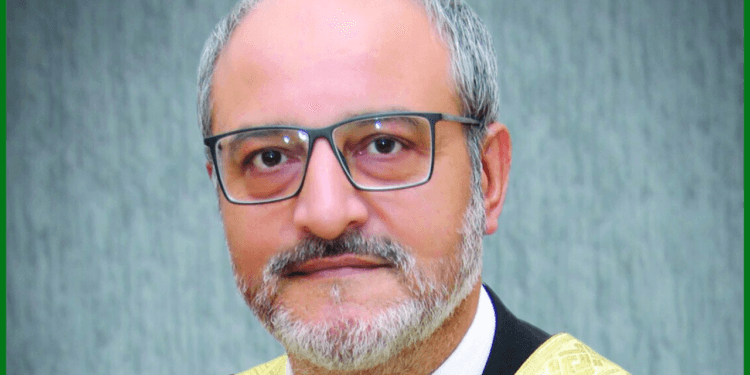ISLAMABAD: Justice Sardar Ijaz Ishaq Khan of the Islamabad High Court (IHC) unleashed a scathing rebuke on Wednesday, March 19, 2025, after a contempt case involving Pakistan Tehreek-e-Insaf (PTI) founder Imran Khan was abruptly removed from his court’s cause list and reassigned to a larger bench. Initiating suo motu contempt proceedings, the judge demanded explanations from the IHC Deputy Registrar Judicial and the Advocate General, raising sharp questions about judicial independence and the potential for abuse of power within the court system.
The controversy erupted after a case filed by PTI lawyer Mashal Yousafzai—alleging that Adiala Jail’s superintendent failed to facilitate a court-ordered meeting with Imran Khan—was delisted. The matter was one of several related to Khan’s jail visitation rights, which were rescheduled for a hearing on Thursday, March 20, before a three-member bench led by Acting Chief Justice Sardar Sarfaraz Dogar, alongside Justices Arbab Muhammad Tahir and Azam Khan. Justice Khan, who had been presiding over the contempt case, was blindsided by the transfer, which he called a direct affront to his court’s authority.
During the hearing, Deputy Registrar Sultan Mahmood, summoned to explain the delisting, revealed that the instructions came from the Chief Justice’s office, citing the formation of the larger bench. Justice Khan fired back, questioning whether the Chief Justice even had the power to reassign cases without the presiding judge’s consent. “The IHC rules don’t grant such authority,” he stated, warning of the dangerous precedent this could set. “Imagine a corrupt Chief Justice in the future—would this open the door to nepotism and corruption?” he asked pointedly, adding that the move was “tantamount to misleading the court of justice.”
The judge’s frustration peaked as he remarked, “If the state has decided to enforce its will, there’s no point in me sitting here.” He challenged the registrar’s role, asking, “Is a judge now beholden to the registrar’s office to decide which cases to hear?” Justice Khan declared the larger bench’s proceedings a contempt of his court, ordering both the Deputy Registrar and the Advocate General to submit written responses by Thursday, when the hearing resumes.
The case’s reassignment follows Acting Chief Justice Dogar’s directive on Monday to consolidate over 20 pleas concerning Khan’s meeting rights in jail, a move that has now sparked judicial friction. PTI lawyer Shoaib Shaheen noted that neither the state nor the jail superintendent were parties to the original case, questioning their influence over the transfer. Yousafzai, meanwhile, voiced broader concerns: “If this can happen to us in open court, what must Imran Khan and Bushra Bibi be enduring in prison?” Justice Khan acknowledged the gravity of her words but shifted focus to the judiciary’s own survival, stating, “The guided missile aimed at you is now coming for us.”
The episode underscores deeper tensions within Pakistan’s judicial and political landscape. Khan, incarcerated for over a year, has been at the center of legal battles over his treatment in Adiala Jail, with PTI alleging systemic obstruction. Justice Khan’s earlier orders for Khan to appear in court—either in person or via video link—were defied by prison authorities citing security threats, prompting the formation of a judicial commission to verify Yousafzai’s legal representation of the PTI founder. The larger bench’s hearing today will now tackle these issues, but Justice Khan’s contempt proceedings cast a shadow over the process, raising questions about judicial autonomy and the state’s role in influencing court proceedings.

















































